Abstract
The four principles approach to biomedical ethics (4PBE) has, since the 1970s, been increasingly developed as a universal bioethics method. Despite its wide acceptance and popularity, the 4PBE has received many challenges to its cross-cultural plausibility. This paper first specifies the principles and characteristics of ancient Chinese medical ethics (ACME), then makes a comparison between ACME and the 4PBE with a view to testing out the 4PBE's cross-cultural plausibility when applied to one particular but very extensive and prominent cultural context. The result shows that the concepts of respect for autonomy, non-maleficence, beneficence and justice are clearly identifiable in ACME. Yet, being influenced by certain socio-cultural factors, those applying the 4PBE in Chinese society may tend to adopt a "beneficence-oriented", rather than an "autonomy-oriented" approach, which, in general, is dissimilar to the practice of contemporary Western bioethics, where "autonomy often triumphs".
Full text
PDF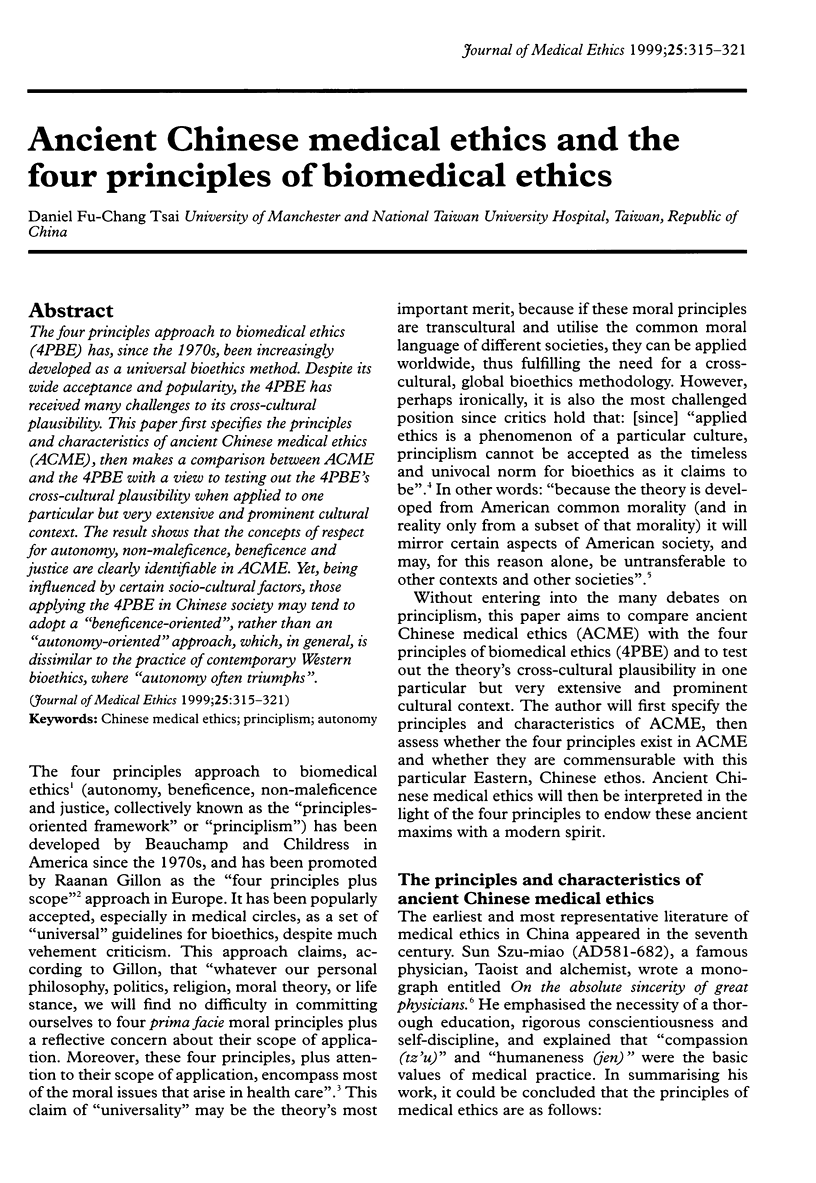
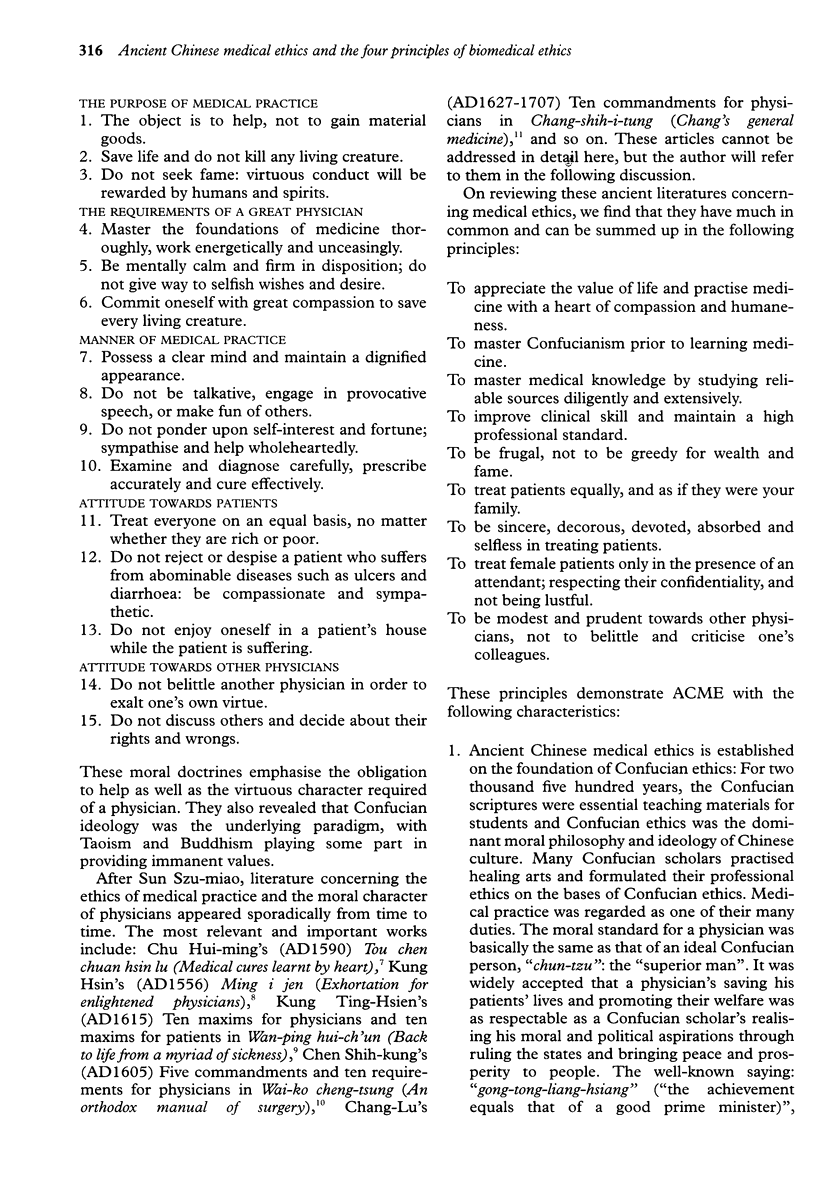
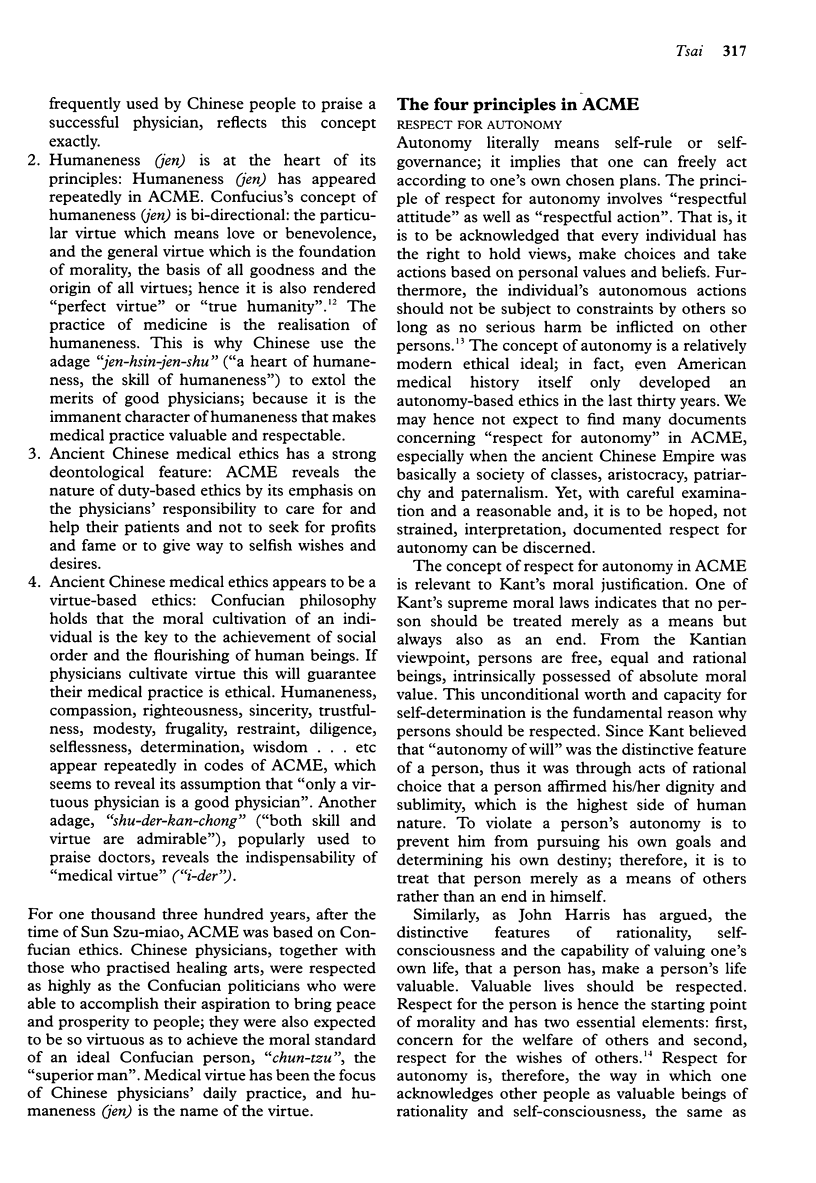
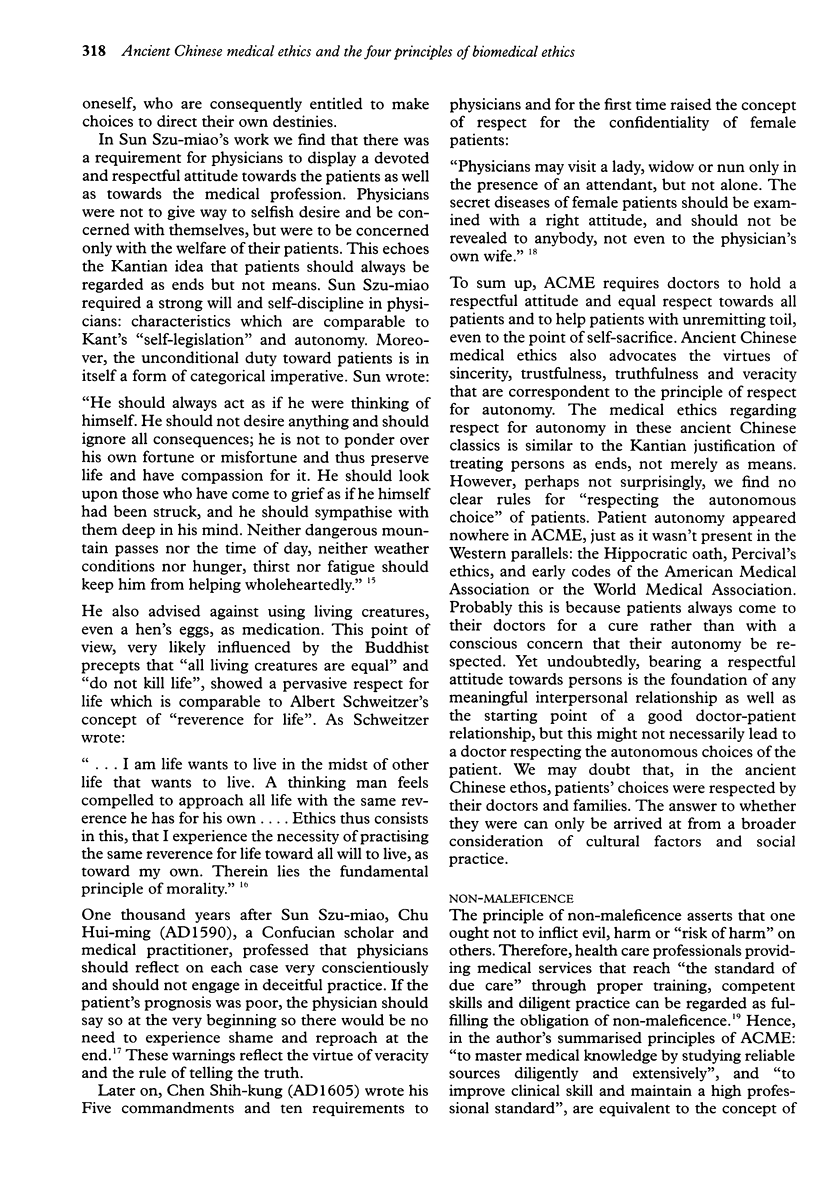
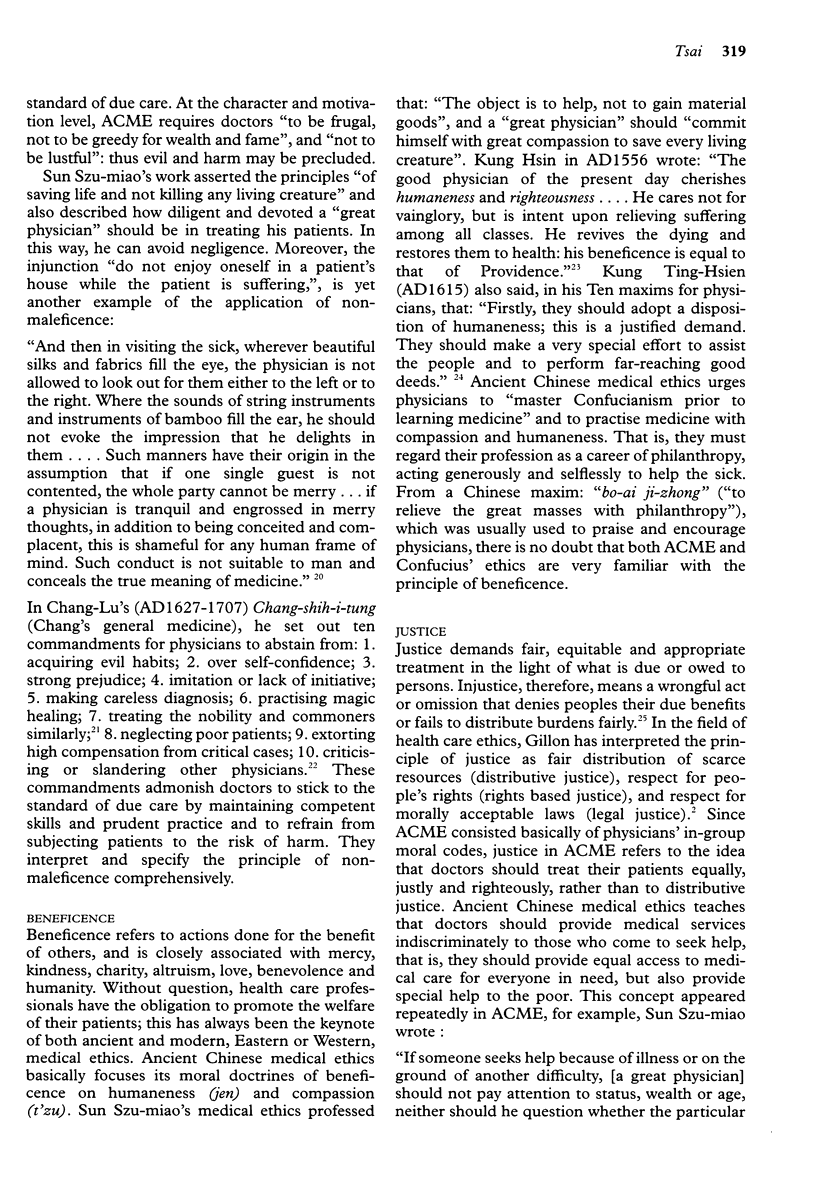
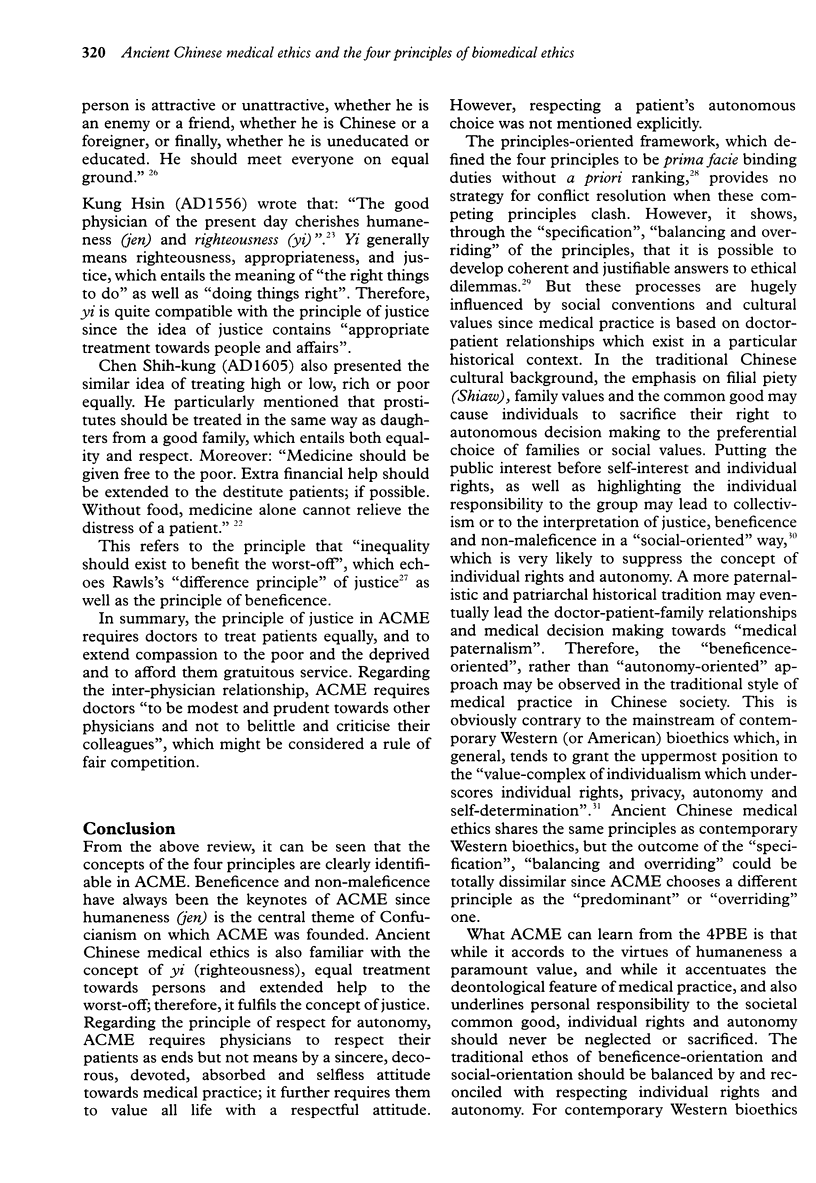
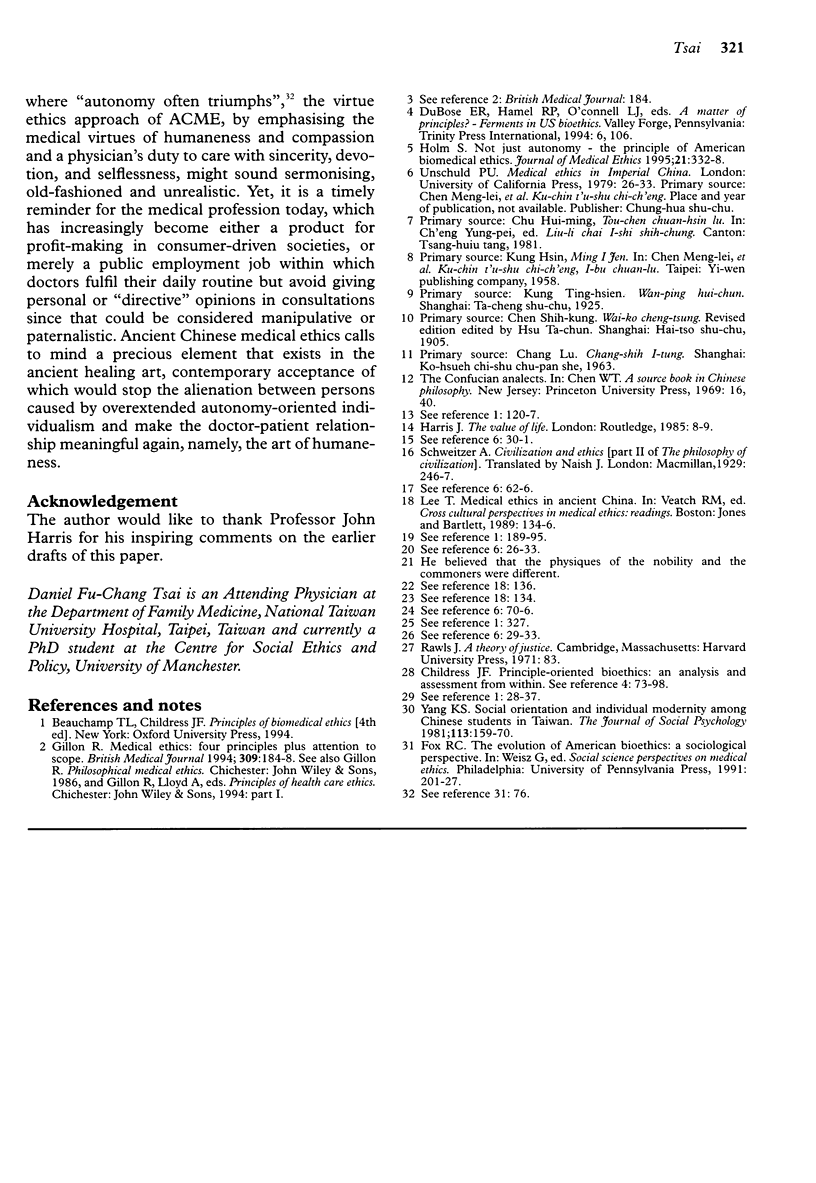
Selected References
These references are in PubMed. This may not be the complete list of references from this article.
- Gillon R. Medical ethics: four principles plus attention to scope. BMJ. 1994 Jul 16;309(6948):184–188. doi: 10.1136/bmj.309.6948.184. [DOI] [PMC free article] [PubMed] [Google Scholar]
- Holm S. Not just autonomy--the principles of American biomedical ethics. J Med Ethics. 1995 Dec;21(6):332–338. doi: 10.1136/jme.21.6.332. [DOI] [PMC free article] [PubMed] [Google Scholar]


